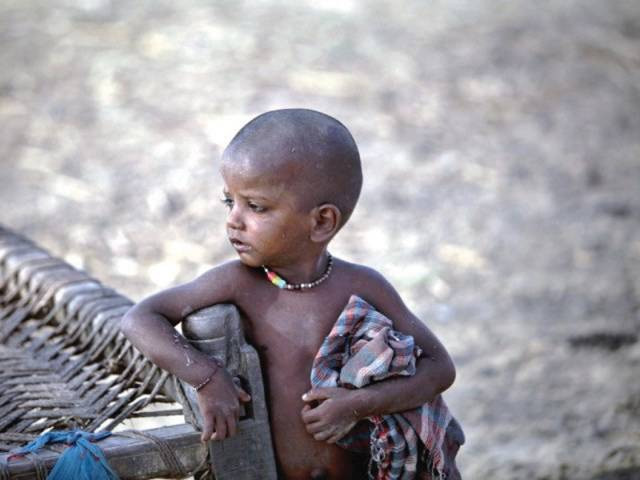Health challenge: 45% of all child deaths due to malnutrition: experts
All Pakistan Food Science Conference held at University of Agriculture, Faisalabad

PHOTO: FILE
A total of 45 per cent of all child deaths in Pakistan are due to malnutrition, said health experts on Tuesday.
They were addressing the 26th All Pakistan Food Science Conference, arranged by the National Institute of Food Science, University of Agriculture Faisalabad (UAF) in collaboration with Pakistan Society of Food Scientists and Technologists.
UAF Vice Chancellor Prof Dr Iqrar Ahmad Khan said that the country faced a crisis of malnutrition which was among the worst in the world.“A total of 32.7 per cent of children suffer from iron deficiency, 30.3 per cent from a vitamin A and 40 per cent from a zinc deficiency,” Khan said. He said that food fortification was needed to address the issue.
He said that the establishment of the Punjab Food Authority would help ensure quality food for people.
UAF Faculty of Food, Nutrition and Home Sciences Dean Prof Dr Masood Sadiq Butt said that two billion people subsisted on diets that lacked vital vitamins and nutrients in the world. “Under-nutrition, including micronutrient malnutrition, is one of the main causes of impaired physical and mental development among infants and children. Scaling up wheat flour fortification is needed to protect future generations from nutrient deficiency,” he said.
Pakistan Society of Food Scientists and Technologists president Prof Dr Faqir Anjum said that the world population stood at seven billion and it would reach the nine billion mark in 2050. “We are losing three per cent of Gross Domestic Product due to malnutrition. Most of the country’s population is living below the poverty line,” he said.
Prof Dr Muhammad Shafique said that malnutrition was one of the leading causes of child mortality in the country. He said that more steps were needed to ensure food fortification in order to fight the challenge of malnutrition. He said that scientists, experts, NGOs and the academia should participate in this struggle.
Dr Tahir Zahoor said that only five per cent of food items were being processed for value addition. “With the value addition, the country can earn heavy foreign exchange,” he said.
Published in The Express Tribune, April 20th, 2016.



















COMMENTS
Comments are moderated and generally will be posted if they are on-topic and not abusive.
For more information, please see our Comments FAQ